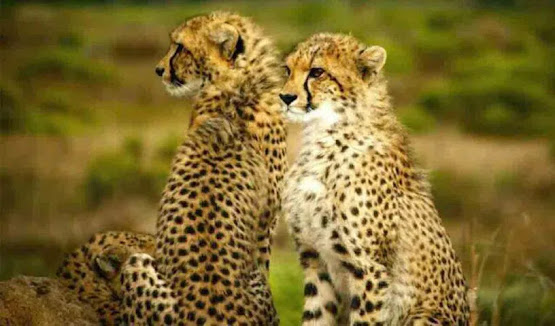Madhya Pradesh: Preparations Afoot For Next Batch Of Cheetahs At Gandhi Sagar Wildlife Sanctuary
Sheopur: Preparations are going on for next batch of cheetahs at two sites, one is Gandhi Sagar Wildlife Sanctuary in Madhya Pradesh. Head of Project Cheetah SP Yadav, while giving this information, has said as per the MoU, South Africa is ready to provide 12 to 14 cheetahs every year.
Yadav, who is also a member secretary of the National Tiger Conservation Authority (NTCA), said the habitat of Gandhi Sagar is suitable, and the work of making enclosure is going on at a very fast pace.
"I hope that in November-December the work of fencing and enclosure will be complete and a decision will be taken to bring cheetahs there after inspection,” Yadav said.
Twenty cheetahs were relocated from Namibia and South Africa to Kuno National Park in two batches in September last year and in February this year.
Following the translocation of 12 cheetahs in February from South Africa, the plan is to translocate 12 annually for the next eight to 10 years.
Not a single cheetah died due radio collars
SP Yadav also said that not a single cheetah died due radio collars at Kuno National Park. He said carnivores and animals are monitored all over the world by radio collars and this is a proven technology.
“There is no truth that any cheetah died due to radio collars. I want to say that monitoring is not possible in the wild without radio collars,” he said.
Lone surviving cub becomes a ray of hope
Meanwhile, the first cheetah cub born on Indian soil after 75 years is now going to be 6 months old. This female cub, born on March 24 in Kuno National Park, is now not only completely healthy but has also become a ray of hope. She will turn six months old on 24th September.
A detailed report has been prepared in Kuno's newsletter on Namibian female cheetah Jwala and her cubs. Jwala, who came to India on September 17 last year, is the first female cheetah who mated with a male cheetah here, after which she gave birth to 4 female cubs on March 24.
Three cubs died on May 23 due to the extreme heat in May. The weight of the lone cub that was rescued had reduced from two and a half kilos to one and a half kilos. When mother Jwala did not accept it, the doctors of Kuno raised this female cheetah.
KNP expanded, cheetahs will have more space
Meanwhile, on completion of a year in the country to the cheetahs on 17 September, a total of 500 sq km of area has been added up to the Kuno. Now, cheetahs would have more space to be active in wild. After adding this forest, a corridor is likely to be developed connecting Kuno National Park, Shivpuri jungle and Rajasthan’s Ranthambore.
Kuno DFO Prakash Verma informed that as monsoon period is underway, all cheetahs are in an enclosure and medical team is keeping an eye on their health. Regular health check-up is being conducted on cheetah. He said team has suggested to release them back to wild in October after monsoon gets over.

